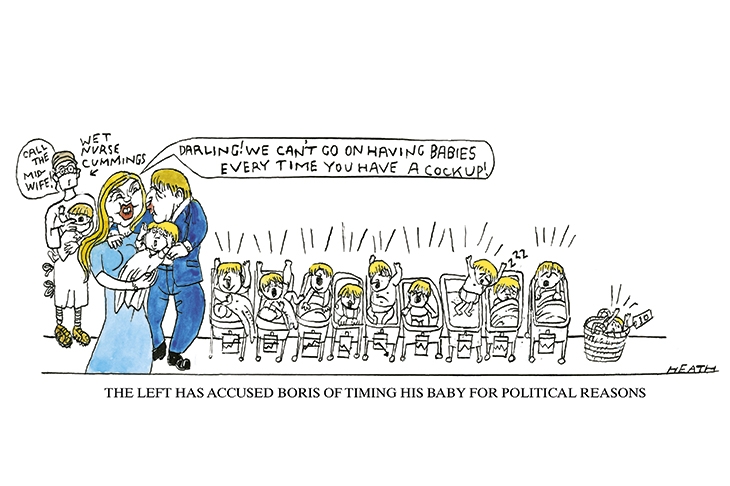Home
After a Cobra emergency meeting about the coronavirus Covid-19, when the number of cases in the United Kingdom had reached 40, Boris Johnson, the Prime Minister, said that they had ‘agreed a plan so that as and when it starts to spread — as I’m afraid it looks likely that it will — we are in a position to take the steps that will be necessary’. The plan expects up to a fifth of the workforce to be off sick during the peak of an epidemic. After a week in which shares lost 12 per cent of their value, the Bank of England said that it was working ‘to ensure all necessary steps are taken to protect financial and monetary stability’. The Budget had to be adjusted. Anglo American’s £405 million bid for Sirius Minerals, the Yorkshire polyhalite mining enterprise, was approved by shareholders. Carrie Symonds, aged 31, the girlfriend of Boris Johnson, aged 55, announced that she would have a baby in the early summer and that at the end of last year they had become engaged to be married.
Sir Philip Rutnam resigned as the Permanent Secretary at the Home Office and said he would sue for constructive dismissal. ‘I have been the target of a vicious and orchestrated briefing campaign,’ he told the BBC. ‘The Home Secretary [Priti Patel] categorically denied any involvement in this campaign to the Cabinet Office. I regret I do not believe her.’ Britain began trade talks with the EU, which put it about that Britain would walk away from the table in June to force an agreement in September. Britain’s negotiating position for trade talks with America was published; it promised to maintain food standards and declared that the NHS was ‘not on the table’. The government’s plan to expand Heathrow with an extra runway was unlawful, the Court of Appeal ruled, because it did not take into account commitments under the Paris climate agreement. The government said it would not appeal, but Heathrow said it would. ITV apologised for the wearing of outfits featuring the Japanese rising sun motif during a performance of Ciao Adios on Ant and Dec’s Saturday Night Takeaway.
Abroad
More than 3,000 people had died in total from the coronavirus fever as the week began. It had spread to dozens of countries including Iceland and Armenia. China had seen 80,026 cases and 2,912 deaths. South Korea reported the most cases after China, with 4,212 and 28 deaths; schools there were closed. In Iran, 23 MPs were found to have the virus. Iran let out on parole 54,000 prisoners who had tested negative. Cases were reported in the United States from coast to coast, with some deaths. In Japan, shoppers bought lavatory paper in bulk. Airlines amalgamated flights as demand fell. The Louvre closed. Central banks including those of Japan and the United States undertook to stabilise markets and offer liquidity, with the Federal Reserve lowering its benchmark rate by 50 basis points to a range of 1 per cent to 1.25 per cent. The Pope was reported to have tested negative for the virus. Border guards fired teargas as Greece stopped almost 10,000 migrants from crossing its land border in 24 hours after Turkey said it would no longer enforce a 2016 deal with the EU to prevent migrants entering Europe. Shots were fired at sea where migrants had embarked on small craft, and 300 migrants arrived in Lesbos on seven boats. President Recep Tayyip Erdogan of Turkey said that soon ‘millions’ of refugees would enter Europe. A new wave of a million refugees had gathered on Turkey’s border with Syria following an escalation of the conflict there. In the northern Syrian province of Idlib, 33 Turkish soldiers were killed in an air strike; Turkey responded with drone strikes that killed 19 Syrian soldiers.
On Super Tuesday, after Pete Buttigieg and Amy Klobuchar had withdrawn their candidacies, Joe Biden and Bernie Sanders became the clear frontrunners for the Democratic nomination in this year’s United States presidential election. The Afghan Taleban signed a peace agreement with the United States, but a few days later killed 20 Afghan soldiers and policemen. Adel Abdul Mahdi said that he would no longer carry out most of his duties as Prime Minister of Iraq, and his designated successor, Mohammed Allawi, withdrew his candidacy. Israel’s third election in a year saw the bloc led by Benjamin Netanyahu, the Prime Minister, gain the most seats but no overall majority. CSH






Comments